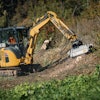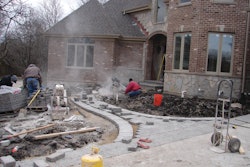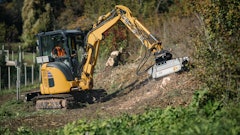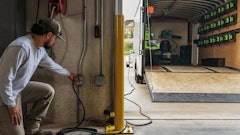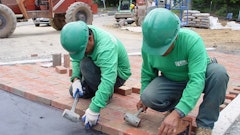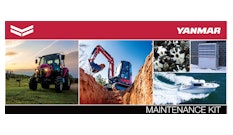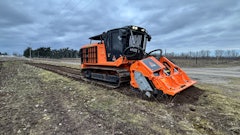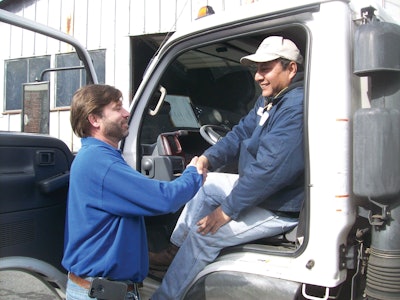
No matter how well-run your company is, mistakes are bound to happen from time to time. Of course, the ideal scenario is that they happen as infrequently as possible—particularly those that adversely affect the customer. The other ideal scenario is that you have systems in place to swiftly resolve problems before they result in lost customers and negative word of mouth.
The manner in which a landscape company goes about responding to and resolving customer complaints depends on several factors. A big one is simply the size of the company. For many companies, the owner himself is on the site working with his crew. Thus, he is readily accessible right there on the job should a problem arise. At the other end of the spectrum are the huge companies where the owner rarely gets out into the field. In these instances, account managers are typically responsible for maintaining quality control and client communication.
Somewhere in between are the rest of you. Landscape company owners are wearing multiple hats, but still play a key role in sales and customer service. When there's a problem, the client wants to talk to you. Some companies prefer it this way; owners want to maintain control over what is and isn't discussed with the client. But other companies are seeing the potential benefits of training and empowering crew foremen to communicate with clients and help resolve problems.
Barringer & Barringer Inc. Landscape Services in Charlotte, NC, is a great example. Founded in 1985, the company went through a restructure in the middle of the recession, losing management and clients in 2010. Now half the size, the company has 15 employees (four crews) and offers both landscape construction and maintenance services. As owner and president, John Barringer oversees the construction division. Industry veteran Derek Kelly was hired this past fall to run the maintenance division.
Establish expectation and protocol
Whether it's a construction or maintenance job, "We attempt to handle customer issues before they become concerns or complaints," Barringer says. This starts with establishing expectation up front, along with clearly defining the lines of communication.
Landscape construction clients are encouraged to contact Barringer while maintenance clients are encouraged to contact Kelly. Additionally, each of Barringer & Barringer's new maintenance clients receive a welcome letter from business development manager Deborah Barringer with phone numbers and emails for both Barringer and Kelly, along with a support email and number for office manager Jamie Kent. The crew foreman assigned to a given property is not indicated on the welcome letter; Barringer & Barringer Inc. prefers that clients go directly to management or the office with questions or concerns.
"We strive to form a personal relationship with every client," John Barringer adds. To that end, many clients do make it a point to also get to know the crew foreman on their property. "If a question ever comes up that is an addition or change to the regular weekly service—such as a broken window, malfunctioning irrigation, etc.—the crew foreman is trained to gather the information and contact his operations manager for clarification, documentation and follow-up."
Teamwork approach requires communication, documentation
Barringer prefers a teamwork approach to problem solving. "We prefer that the foreman collects information from the client and passes it along to the operations manager through written comments on daily worksheets," Barringer elaborates. These days, foremen also take photos on their cell phones quite often.
A verbal follow-up with the operations manager takes place soon after the foreman presents his information, often the following morning; foremen meet individually with the ops manager every morning before heading into the field. "We do not expect a foreman to resolve a situation without our support, and the operations manager is the best resource for passing information through the proper channels," Barringer adds.
On the topic of "passing information through the proper channels," Barringer & Barringer Inc. foremen are responsible for daily reports that are entered into a computer reporting system. As a given crew develops individual relationships with clients, questions or concerns are more frequently presented directly to the crew foreman on site. Thus, foremen are trained on how to gather this information and report it on the daily worksheets.
It starts with setting standards
As you can see, effectively resolving customer complaints requires clear processes for crews, admin staff and managers to follow once a concern is raised. At the same time, it's just as important to have clear processes in place so that the likelihood of concerns ever being raised in the first place is greatly diminished.
It starts with hiring the right people and providing the necessary training to assimilate them into your company culture. Barringer & Barringer Inc. Landscape Services provides new hires with an extensive 90-day training period. Additionally, the company also requires foremen to have at least five years of landscape experience, proficiency with equipment, an understanding of horticultural practices and production standards, and dedication to accurate administrative paperwork preparation. "We put this right in our employment ads," Kelly points out.
Next is quality control. "As we develop our relationship with a (maintenance) client, we determine their needs and desires, and translate them from concept to annual contract," Kelly says. "Annual contracts, which include weekly visits with specific duties prescribed for the contracted landscaped areas, allow crews to remain focused on the job so we can stay on task and maintain consistent quality control. The appearance and health of the landscape is considered over methods and procedures—and that is where the issue of quality control becomes everyone's job."
Quarterly site inspections by the operations manager further aid quality control, looking for things like turf and plant disease. Additionally, seasonal color audits (annuals)—along with the ongoing monitoring of mulch/pine needles, pruning needs and irrigation system performance—help keep clients happy.
But in between those quarterly site inspections, it is the foreman's job to keep an eye on things and alert his operations manager of any looming problems on the property. "We need to hear if a client might be unhappy from the foreman, not the client," Kelly says.
Taking ownership
What it all boils down to is communication and teamwork. "Our reputation has been built on reliable service and quality work," Barringer says. "To maintain this reputation requires the active participation of every employee. We want every foreman and laborer to be empowered through training, safety, job satisfaction, and a sense of pride in their work.
"We've been known to switch up a crew for the right working chemistry," Barringer continues. "We have also changed routes to utilize specific talent such as pruning, or to match a crew dynamic with a specific client need."
“Barringer & Barringer Inc. has always strived to treat its foremen with a high level of respect, which translates to a higher level of respect the foreman has for both his laborers and the client. "This opens the door to communication, and keeps that door open for comments, questions, differences of opinion, and longer-term relationships," Barringer says.
"We ask our foremen to 'own' their properties and keep the operations manager informed of any potential problems and opportunities," Barringer continues. "Again, communication is key. Clear instructions to the foremen from the operations manager, and vice versa, allow crews to operate efficiently and not get bogged down in the field.
"The foreman's involvement in recognizing and reporting problems is an essential part of our landscape management team—but we also expect the operations manager to keep the ball rolling. This team approach to problem solving often results in a practical solution before an issue becomes a problem in the first place. Quality control is in everyone's best interest."


